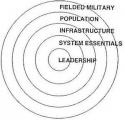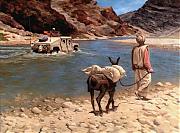While the focus of the Air Force is more on high-intensity conflict, I don't think everything is focused on blowing things up.
There is a definite understanding that right now ISR, Non Traditional ISR, mobility, force support, and in-lieu of taskings are how we support the joint force in Iraq and Afghanistan.
Armed overwatch of the folks on the ground is the main kinetic operation, but even in that we've developed some great TTPs to reduce the force used to the neccessary levels.
See this article for examples:
http://www.airpower.maxwell.af.mil/a...aendschke.html
The main way the AF is directly involved in counterinsurgency (IE as a supported force if you will) is in training the HN AF. Our Coalition Air Forces Training Team (CAFTT) in Iraq is being hugely plussed up, and is supported not just by AFSOF but also by AETC and a host of other folks.
Finally, there's a lot the AF can do on the support side to help with counterinsurgency. A good example is this article:
http://www.airpower.maxwell.af.mil/a...m08/brown.html
I want to make it clear I am not advocating air policing in Iraq or Afghanistan, nor am I saying it would be effective or could replace the Army.
At the same time, you have to understand that some of these articles (MGen Dunlap is one example) have problems with the doctrine as written. Just because air policing wouldn't work in Iraq or Afghanistan doesn't mean it won't ever work... it is simply another tool or capability. At some point it may be the right tool. That decision will be based on both the situation/country in question but may also be based on the US population/leaderships will to commit money/people/resources... IE, there could be a situation (just like in Iraq for 12 yrs following Desert Storm!) where the will of the nation will support air policing, but not boots on the ground. Attacking debates on doctrine just because they wouldn't work in the current fight leads to dogmatism.
Again, I am not agreeing with all of the arguements made by some of the airpower enthusiasts, I am simply arguing that a healthy debate on doctrine isn't bad.
V/R,
Cliff








Bookmarks